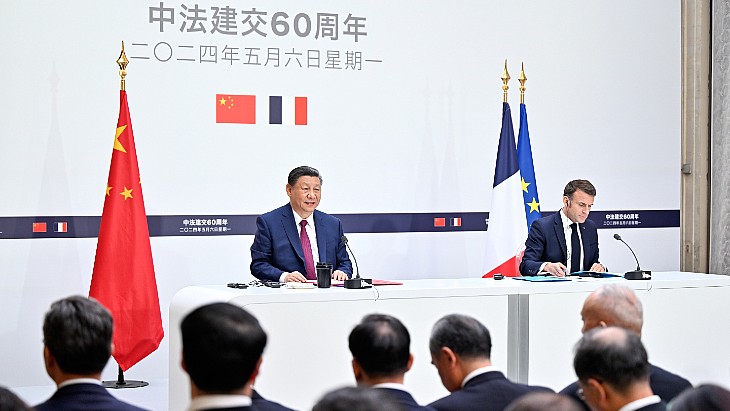Policy support needed for nuclear growth, conference concludes
 Nuclear power remains an important option for many countries in meeting their energy and climate change goals, but investors need clarity and certainty from policy makers, according to Hamad Alkaabi, the UAE Permanent Representative to the International Atomic Energy Agency. He was summing up the conclusions of the International Ministerial Conference on Nuclear Power in the 21st Century, held this week in Abu Dhabi.
Nuclear power remains an important option for many countries in meeting their energy and climate change goals, but investors need clarity and certainty from policy makers, according to Hamad Alkaabi, the UAE Permanent Representative to the International Atomic Energy Agency. He was summing up the conclusions of the International Ministerial Conference on Nuclear Power in the 21st Century, held this week in Abu Dhabi.Nuclear power remains an important option for many countries in meeting their energy and climate change goals, but investors need clarity and certainty from policy makers, according to Hamad Alkaabi, the UAE Permanent Representative to the International Atomic Energy Agency (IAEA). He was summing up the conclusions of the International Ministerial Conference on Nuclear Power in the 21st Century, held this week in Abu Dhabi.
.jpg) |
| Alkaabi (second from right) closes the conference (Image: IAEA/Dean Calma) |
Alkaabi was president of the conference, which was organised by the IAEA in cooperation with the OECD Nuclear Energy Agency (NEA) and hosted by the UAE government. The event had nearly 700 participants from 68 IAEA member states and six international organisations.
In his concluding remarks, Alkaabi said: "While respecting the right of each state to define its national energy policy, the conference recognised that nuclear power remains an important option for many countries to improve energy security, reduce the impact of volatile fossil fuel prices and mitigate the effects of climate change and air pollution, including by backing up intermittent energy sources.
"For many countries, nuclear power will have an important role to play in achieving the Sustainable Development Goals and meeting the targets in the Paris Agreement. Governments should ensure that their national energy policies support their development and climate goals."
However, Alkaabi noted that nuclear "is not currently attracting the necessary global investment" to limit the average global temperature increase to 2°C as required by the Paris Agreement.
He said that governments could provide "clear and consistent" policy support for existing and new nuclear power plants. This, for example, could be by incorporating nuclear power into clean energy incentive schemes and encouraging its development in addition to other clean forms of energy.
"Innovations in technology design - including reactor size - as well as in investment and ownership models could facilitate the introduction of nuclear power in more countries," Alkaabi said. "It was further noted that identifying ways to reduce construction times could improve prospects for financing new nuclear power plants."
UAE sets example
At a side event to the conference, the UAE's nuclear energy programme was showcased as a role model for other countries considering the launch of nuclear power projects to meet their growing energy demands. UAE industry leaders explained how the country has benefitted from the support of and collaboration with the international nuclear energy community in its efforts to develop its nuclear power programme.
Four Korean-designed APR-1400 pressurised water reactors are being built at Barakah for the Emirates Nuclear Energy Corporation. The plant is being built by a consortium led by the Korean Electric Power Company. Construction of Barakah 1 began in 2012, with units 2, 3 and 4 following in 2013, 2014 and 2015. Units 1 and 2, now over 96% and 87% complete, are both expected to start up next year. Units 3 and 4 - 78% and 58% complete, respectively - are expected to start up in 2019 and 2020. When complete, the power station will deliver up to a quarter of the UAE's electricity and avoid the emission of up to 21 million tonnes of carbon annually.
Researched and written
by World Nuclear News









_66488.jpg)


